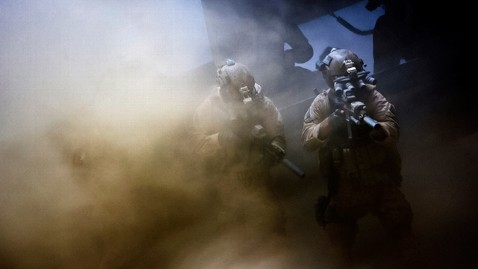SURAT, India (Reuters) - Turning a single Indian state with a long tradition of entrepreneurship and a solid political majority into an investor-friendly economic powerhouse is one thing.
Replicating that experience across a diverse country of 1.2 billion would be a tougher prospect for Narendra Modi, whose leadership of booming Gujarat state has led to his being touted as a potential candidate to become India's next prime minister.
While Modi wins praise even from critics for cutting red tape and making government more responsive and predictable, many ingredients for Gujarat's run of growth were in place well before he took office in 2001.
"It is like an icing on cake sort of thing. You have a nice cake and Modi has done a lot of good icing," said Rakesh Chaudhary, director of Pratibha Group, a textile manufacturer in Palsana on the outskirts of the Gujarat city of Surat.
Industry in Gujarat is helped by a long coastline and plenty of barren land that is easy to turn over to factory use.
The power that comes from a long-standing and heavy majority for his Bharatiya Janata Party (BJP) in the state also gives Modi an advantage that he would not enjoy on a national stage marked by fractious coalition politics.
Despite a controversial past - Modi is accused by critics of not doing enough to stop or of even quietly encouraging religious riots in 2002 that saw as many as 2,000 killed, most of them Muslims - he has established a reputation as an economic reformer in part by building on the strengths of Gujarat and marketing them heavily.
Modi's marketing savvy, aided by the Washington lobbying and public affairs firm APCO Worldwide, will be on display at the biennial "Vibrant Gujarat Summit" that begins on Friday.
Initiated by Modi in 2003 to attract investment after the violence and an earthquake in 2001, the event is attended by thousands of corporate officials who pledge billions in investment, although in reality only a fraction has seen the light of day. Of 12.4 trillion rupees ($225 billion) in investment proposed at the 2009 event, just 8.5 percent had been spent as of November 2011, according to state government data.
"Under Modi's regime, there has been significant improvement in infrastructure growth, significant improvement in industrialization, as well as agriculture," said Jahangir Aziz, senior Asia economist at JPMorgan. "But what has been overplayed is initial conditions were actually pretty decent in Gujarat."
HIGHER OFFICE?
The stocky Modi, who favors traditional Indian attire and a clipped white beard, plays down any prime ministerial ambitions.
But his popularity in Gujarat - the BJP won 115 of the state assembly's 182 seats in a December election - has fuelled speculation that he could lead his Hindu nationalist party in 2014 against India's ruling Congress party, which has been beset by corruption scandals and overseen a sharp economic slowdown.
"His economic record in Gujarat is obviously something which matters a lot to the middle classes. That, coupled with strong leadership," said Swapan Dasgupta, an analyst with links to the BJP who expects Modi to be the party standard-bearer in 2014.
Critics say that while Modi has indeed encouraged investment and helped bring reliable electricity and law and order, double-digit growth has not been shared broadly enough. In the five years through March 2010, some states - including Tamil Nadu and Karnataka - did better at bringing down poverty levels.
"Big business people get a lot from the government and scheduled caste people (minorities) get a lot, but people like us who are in between get nothing," said Bhupendra Thakkar, 50, who earns 6,000 rupees ($109) a month selling fruit near Surat's decrepit railway station.
FRIEND OF BUSINESS
Modi lured Tata Motors to the state in 2008 after the company's plans to build a factory for its low-cost Nano car were thwarted by farmers in West Bengal.
Ford Motor Co and Maruti Suzuki are also building plants in the western state - high profile investments that carry the added benefit of acting as marketing tools.
In the seven years through March 2011, Gujarat's economy grew an annual 10.08 percent at constant prices, against 6.45 percent in the eight years through March 2002 (Modi took office in October 2001), which was still ahead of the all-India average of 6.16 percent. A handful of states, including Maharashtra and Tamil Nadu, clocked bigger gains over the same recent period.
By comparison, policy gridlock at the national level has contributed to a drop-off in corporate investment, putting India on track to record its slowest annual growth rate in a decade.
Accustomed to getting his way, Modi, 62, could struggle to negotiate the coalition politics that have become the norm at the national level and have hindered attempts at reform by Prime Minister Manmohan Singh's Congress-led administration.
"Policymaking has benefited from the fact that the BJP has had absolute majority in the state legislature - an advantage it certainly will not enjoy in the federal parliament," said Anjalika Bardalai, an analyst with the Eurasia Group in London.
Modi has also been able to leverage the business acumen of Gujaratis, a group that has long been known for trading and entrepreneurship and includes a prosperous global diaspora as well as billionaires such as Adani Group chief Gautam Adani and Mukesh Ambani, who controls Reliance Industries, India's most valuable company.
"Modi might not be as successful as he has been here because the business mentality is unique to Gujarat," said Chandrakant Sanghavi, chairman of Sanghavi Exports International, a diamond trader and processor. "It could be prevalent in other states but the ratio may be less." ($1 = 55.0700 Indian rupees)
(Editing by John Chalmers and Alex Richardson)













